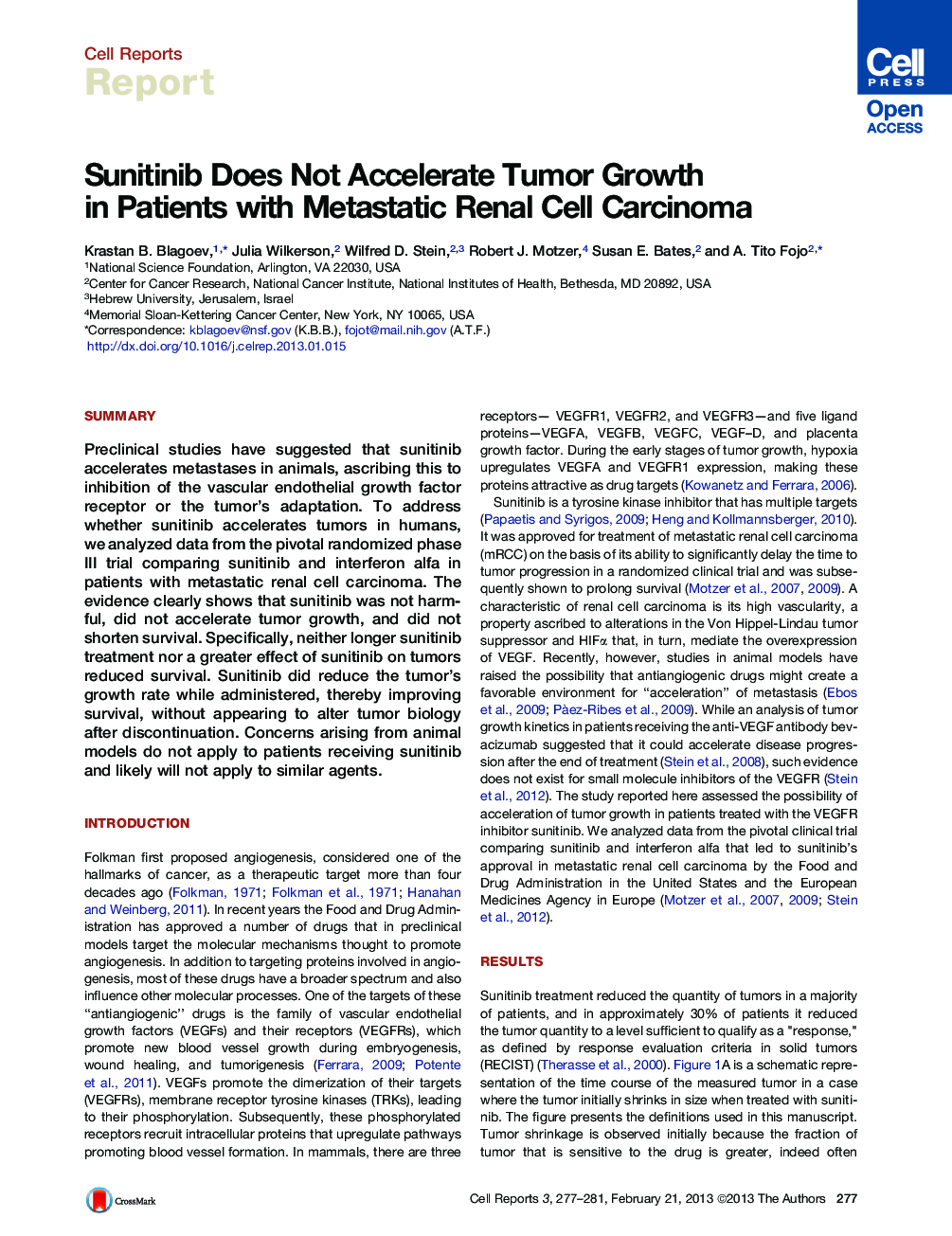| Article ID | Journal | Published Year | Pages | File Type |
|---|---|---|---|---|
| 2042169 | Cell Reports | 2013 | 5 Pages |
SummaryPreclinical studies have suggested that sunitinib accelerates metastases in animals, ascribing this to inhibition of the vascular endothelial growth factor receptor or the tumor’s adaptation. To address whether sunitinib accelerates tumors in humans, we analyzed data from the pivotal randomized phase III trial comparing sunitinib and interferon alfa in patients with metastatic renal cell carcinoma. The evidence clearly shows that sunitinib was not harmful, did not accelerate tumor growth, and did not shorten survival. Specifically, neither longer sunitinib treatment nor a greater effect of sunitinib on tumors reduced survival. Sunitinib did reduce the tumor’s growth rate while administered, thereby improving survival, without appearing to alter tumor biology after discontinuation. Concerns arising from animal models do not apply to patients receiving sunitinib and likely will not apply to similar agents.
Graphical AbstractFigure optionsDownload full-size imageDownload as PowerPoint slideHighlights► Drugs targeting the tumor vasculature are under investigation for cancer treatment ► However, changes in tumor vasculature may promote tumor growth and/or tumor spread ► Our analysis shows that sunitinib does not accelerate tumor growth in humans ► Sunitinib administration has positive effects and no negative effects when stopped
